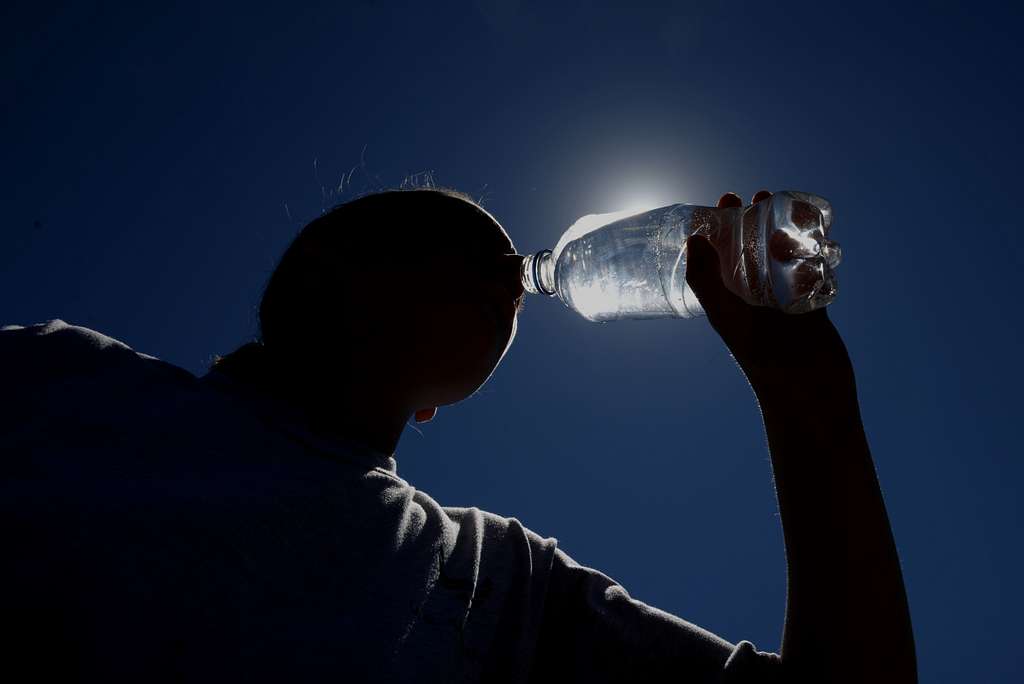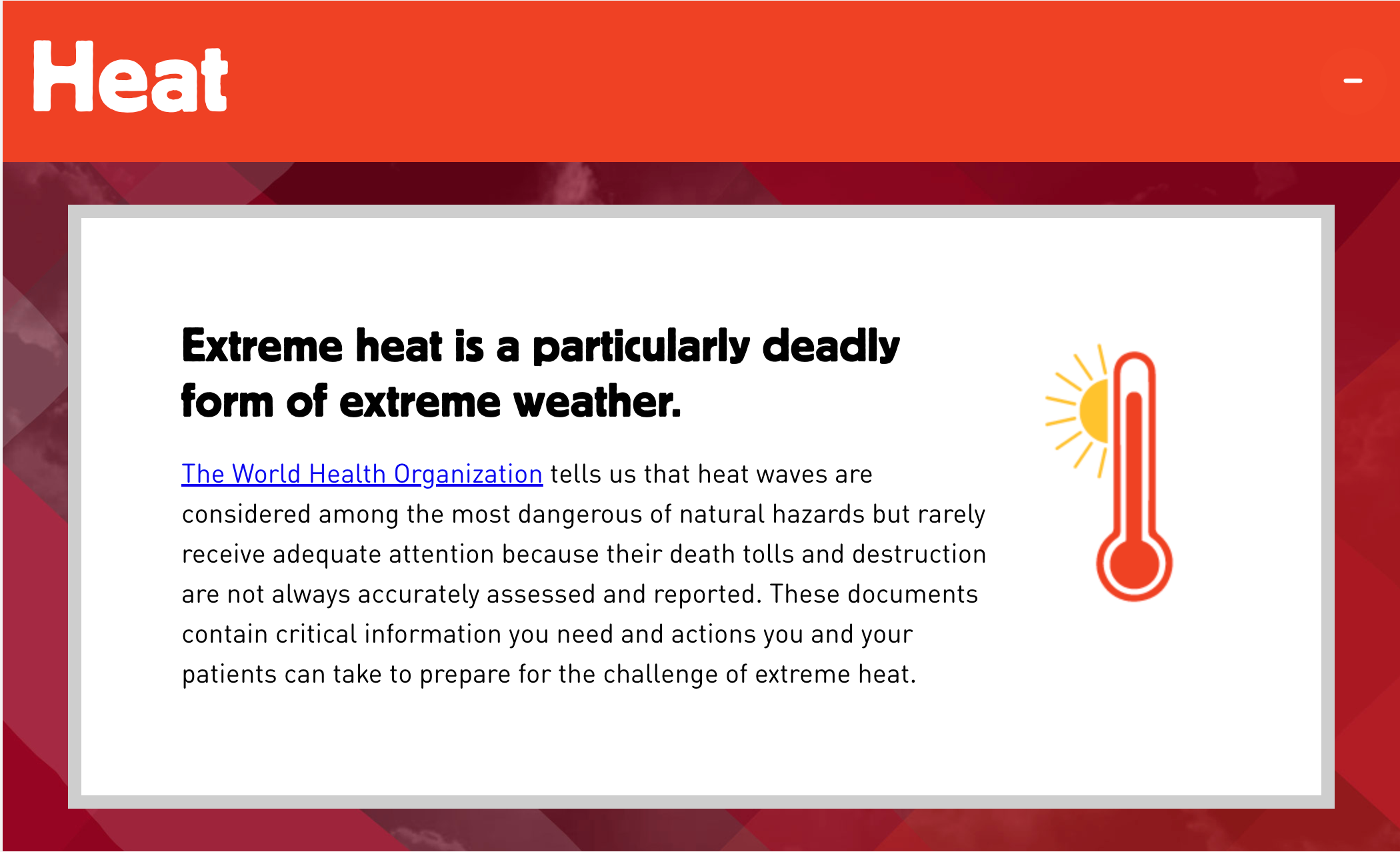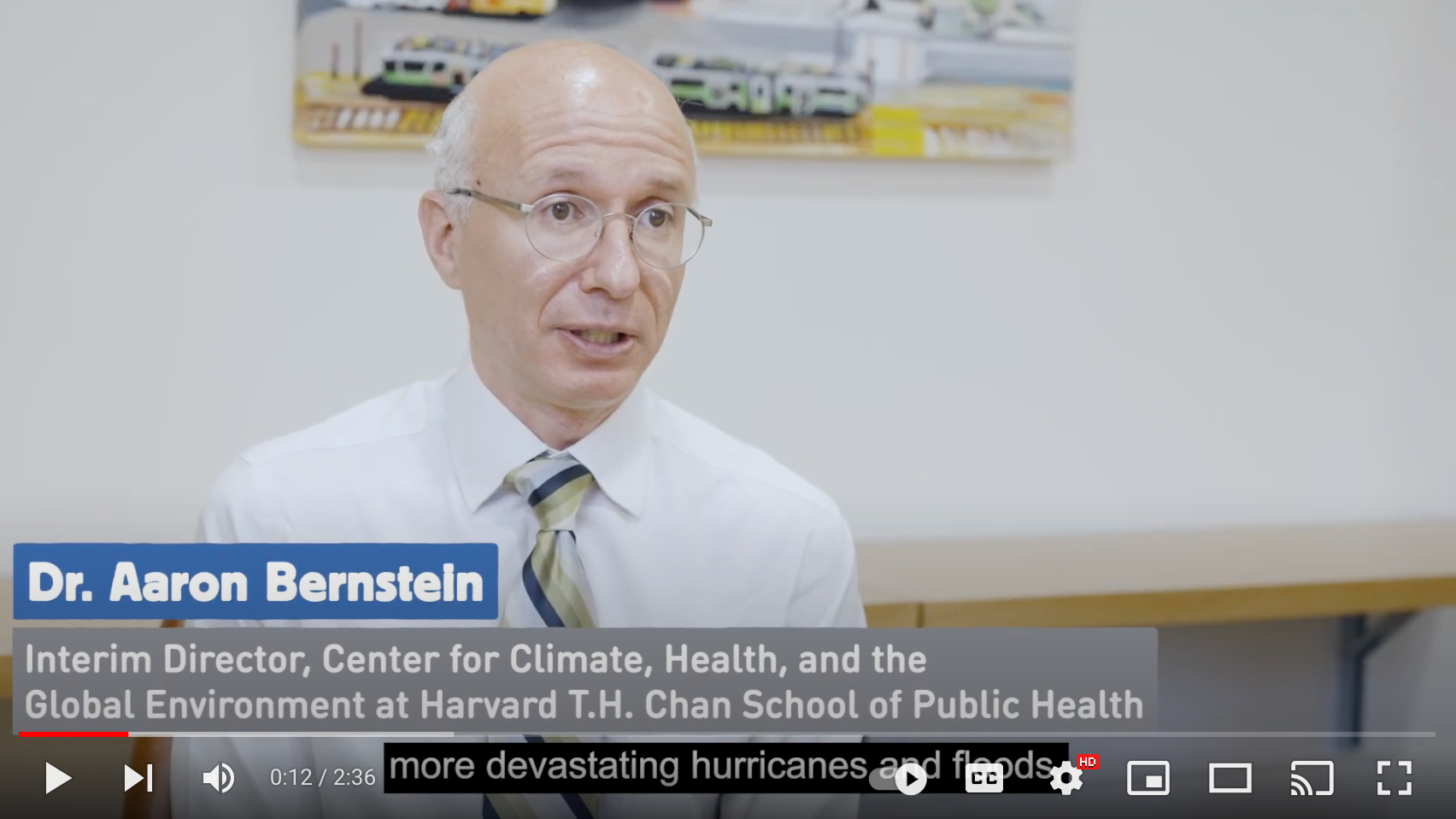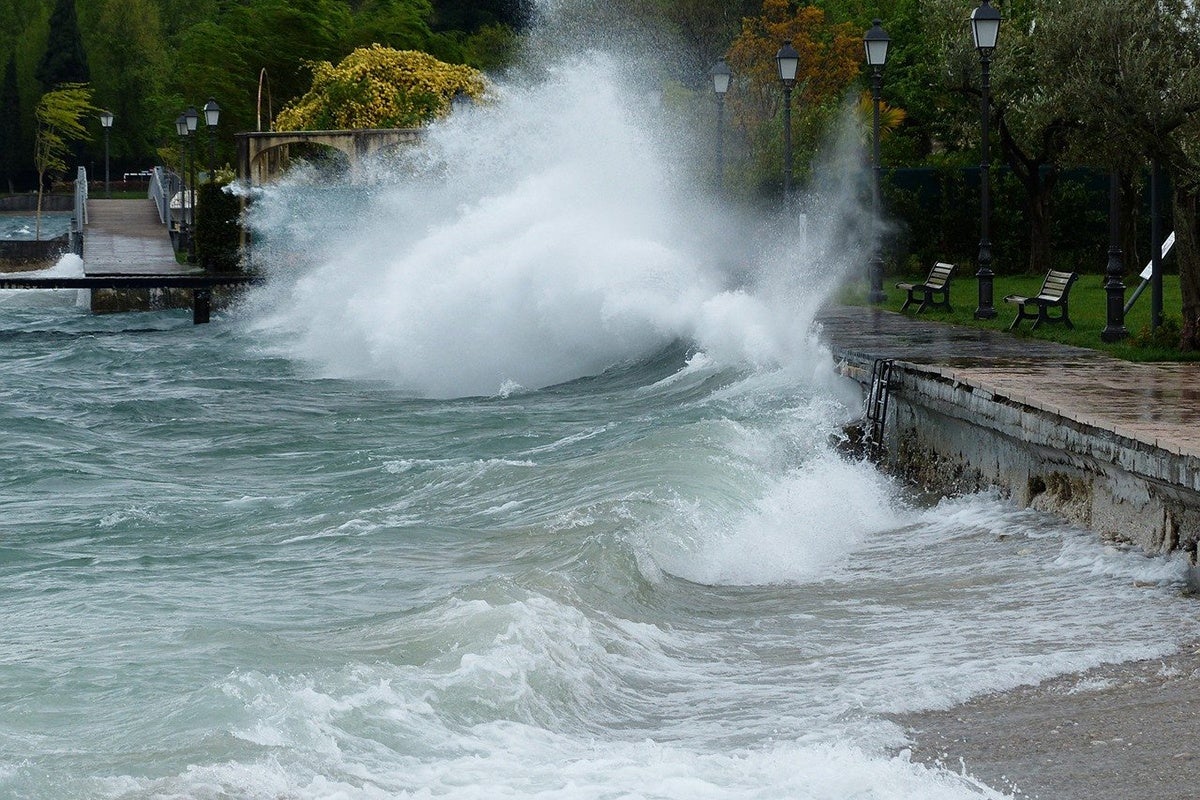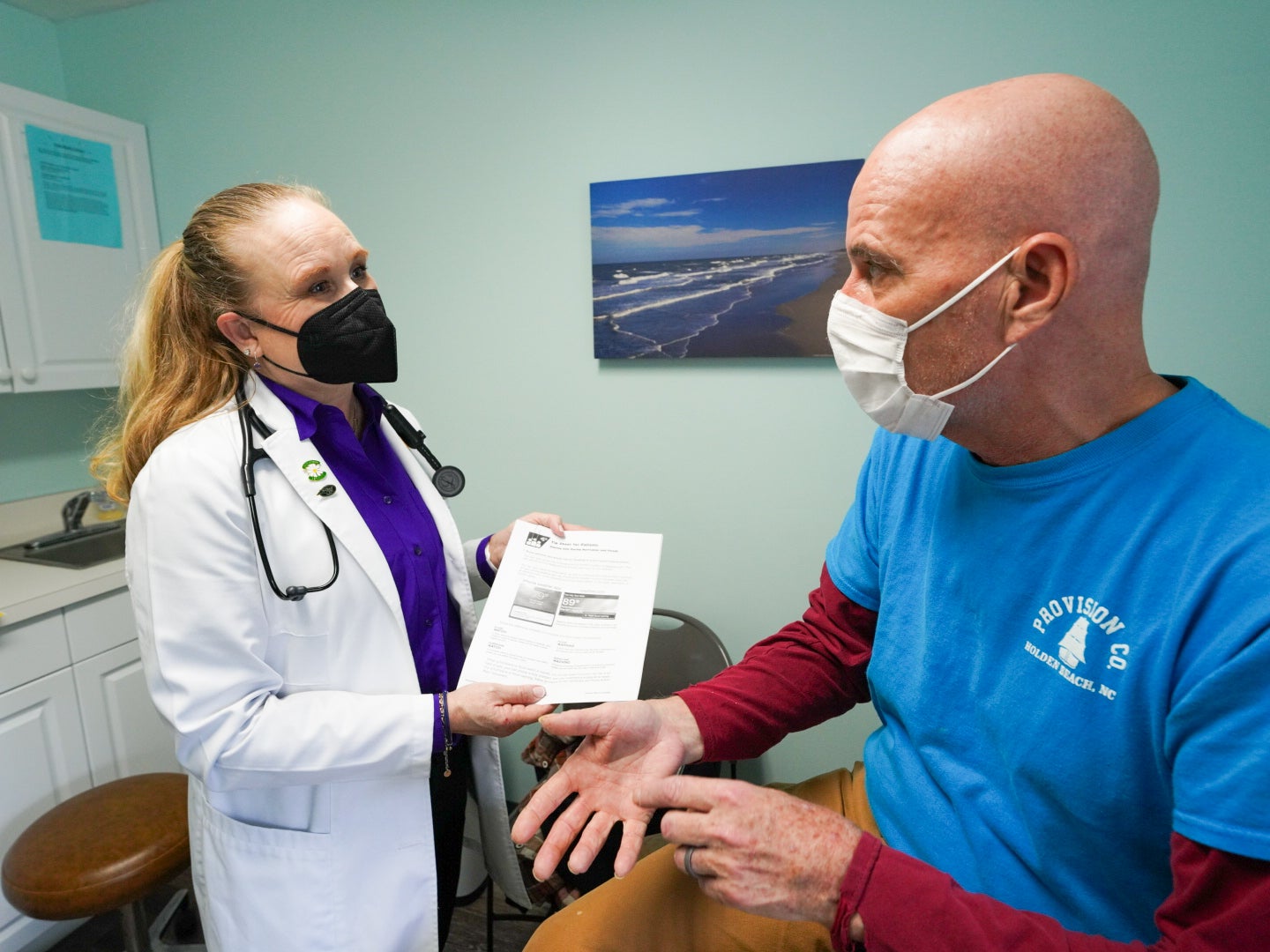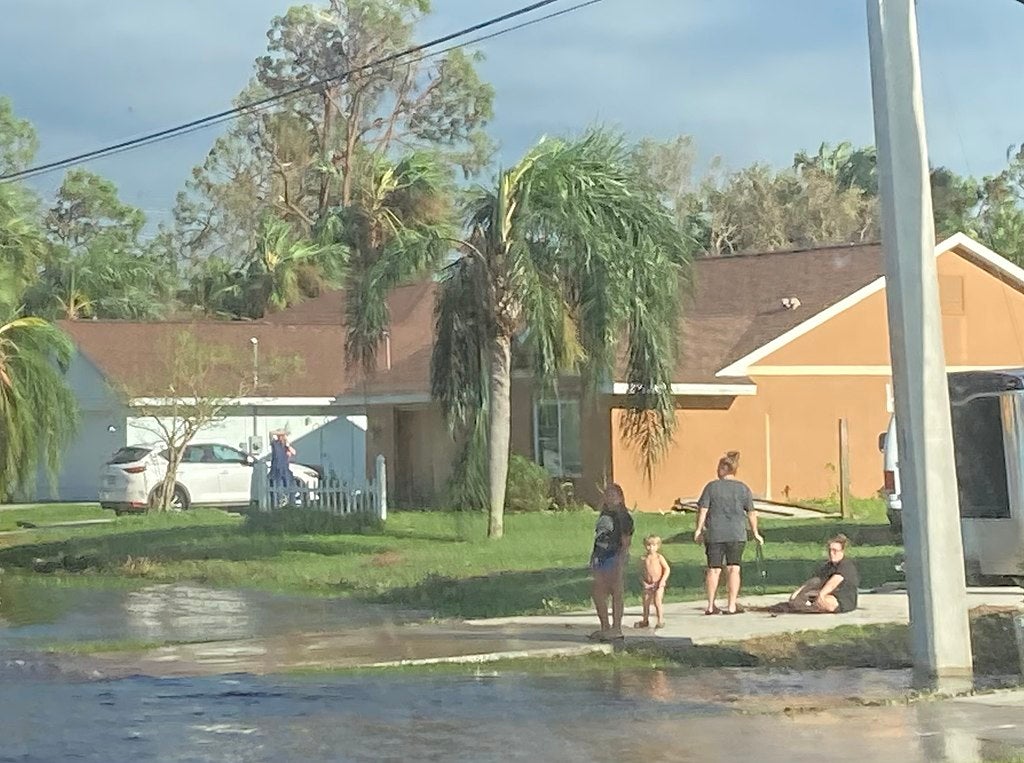Patients served at frontline health clinics typically encounter disproportionate climate change–related health burdens in every aspect of daily life, including the air they breathe and the water they drink.
The health care industry can make equitable patient-centered climate action a reality across the nation by prioritizing climate investments so that they first benefit individuals who lack access to care in communities where health disparities are grossly apparent.
In a new commentary for The Journal of the American Medical Association, our director Dr. Aaron Bernstein, Dr. Howard Koh, the Harvey V. Fineberg Professor of the Practice of Public Health Leadership at the Harvard T. H. Chan School of Public Health, and Kristin Stevens from Americares explain how an equitable, patient-centered approach to climate action enables health care to meet its climate change obligations and its responsibilities to deliver high-quality care for the betterment of all.
For example, after Hurricanes Maria and Irma in 2017, 84 federally qualified health centers in Puerto Rico were converted to solar power. Eighty of these centers remained operational with minimal care disruptions after an island-wide blackout from a failed circuit breaker in April 2022. And every time health care clinicians achieve lower rates of cardiovascular disease among their patients through healthier diets, reduced tobacco consumption, and preventive medications, greenhouse gas emissions decline.

